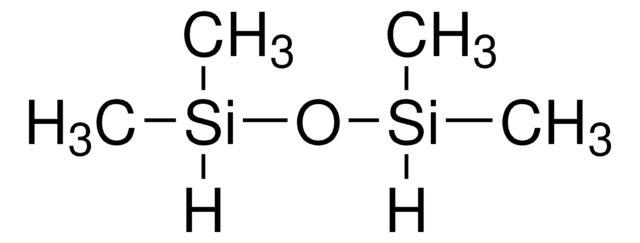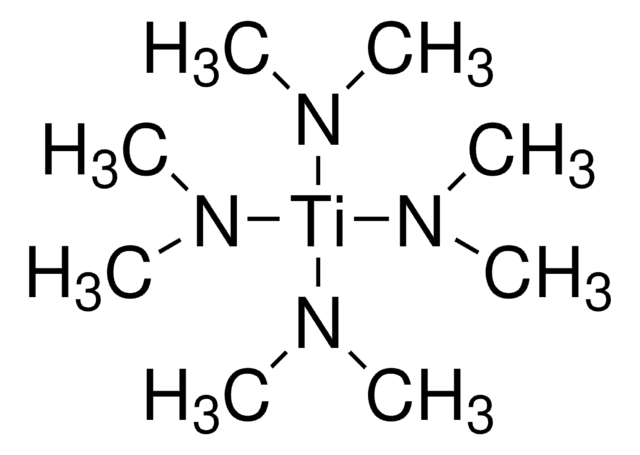377996
Titanium(IV) isopropoxide
99.999% trace metals basis
Synonym(s):
TTIP, Tetraisopropyl orthotitanate
About This Item
Recommended Products
Quality Level
Assay
99.999% trace metals basis
form
liquid
reaction suitability
core: titanium
reagent type: catalyst
refractive index
n20/D 1.464 (lit.)
bp
232 °C (lit.)
mp
14-17 °C (lit.)
density
0.96 g/mL at 20 °C (lit.)
SMILES string
CC(C)O[Ti](OC(C)C)(OC(C)C)OC(C)C
InChI
1S/4C3H7O.Ti/c4*1-3(2)4;/h4*3H,1-2H3;/q4*-1;+4
InChI key
VXUYXOFXAQZZMF-UHFFFAOYSA-N
Looking for similar products? Visit Product Comparison Guide
General description
Application
Signal Word
Warning
Hazard Statements
Precautionary Statements
Hazard Classifications
Eye Irrit. 2 - Flam. Liq. 3 - STOT SE 3
Target Organs
Central nervous system
Storage Class Code
3 - Flammable liquids
WGK
WGK 1
Flash Point(F)
105.8 °F - Pensky-Martens closed cup
Flash Point(C)
41 °C - Pensky-Martens closed cup
Personal Protective Equipment
Choose from one of the most recent versions:
Already Own This Product?
Find documentation for the products that you have recently purchased in the Document Library.
Customers Also Viewed
Articles
ALD — A Versatile Tool for Nanostructuring
From Form to Function: Molding Porous Materials in Three Dimensions by Colloidal Crystal Templating
Mesoporous Oxides and Their Applications to Hydrogen Storage
Global Trade Item Number
| SKU | GTIN |
|---|---|
| 377996-25ML | 4061831835854 |
| 377996-5ML | 4061831835885 |
| 377996-100ML | 4061838253552 |
| 377996-PZ | 4061823845229 |
Our team of scientists has experience in all areas of research including Life Science, Material Science, Chemical Synthesis, Chromatography, Analytical and many others.
Contact Technical Service











